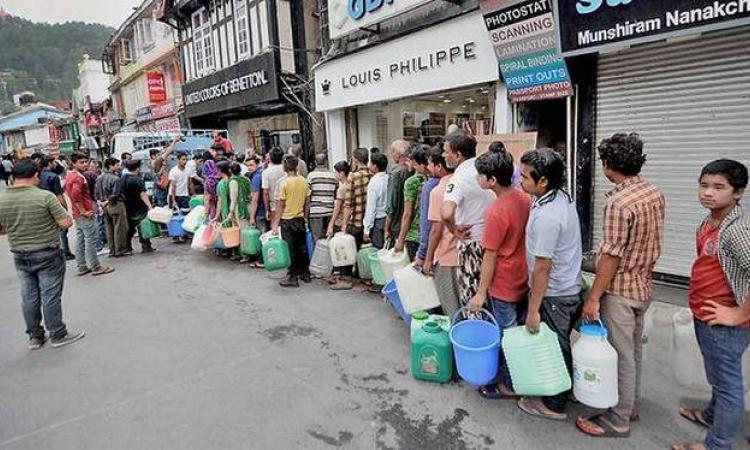
Shimla reels under severe water crunch
With potable water being supplied only once a week to most localities, Shimla is now faced with a severe water supply crisis. As against a normal demand of 42 - 45 million litres per day (MLD), the availability ranges between 23 and 25 MLD. Channels that supply water to Shimla and its suburbs have dried up due to a decrease in snowfall last winter and minimal rains thereafter. Rampant construction and encroachments into catchment areas have severely choked the perennial springs that sustained the city for hundreds of years.
At least 10 species found in Ganga on the verge of extinction
A report released by the Ministry of Water Resources notes that at least 10 species which have been historically found in the Ganga, including the famed Ganges river dolphin and the gharial, are on the verge of extinction. A host of factors including pollution, dredging, sand mining and construction of dams are responsible for habitat loss, which in turn affects the species that thrive in these ecosystems. The study was done as part of the National Mission for Clean Ganga’s Biodiversity Conservation and Ganga Rejuvenation project.
Rs 5 crore penalty slapped on Chadha Sugar Mill for accidental discharge of molasses into River Beas
The Punjab Pollution Control Board has imposed a fine of Rs 5 crore on the Chadha Sugar Mill for the molasses spill which resulted in the death of hundreds of fish in River Beas. Considering that the Beas is the only living river in the state, the board held the mill responsible for causing an environmental catastrophe of a high level and initiated criminal proceedings against it. The mill is not expected to restart operations until fresh consent for operation is obtained under the Water (Prevention and Control of Pollution) Act, 1974.
Water hyacinth and solid waste stifle the Tapi as it flows through Gujarat
Along with scanty rainfall in catchment areas, dumping of solid waste has severely restricted the water flow in one of Gujarat’s perennial rivers, the Tapi. Sewage is also being let out directly into the river at many places, feeding the growth of the invasive water hyacinth. Experts suggest permanent removal of vegetation and desilting to help the river flow. Almost a decade and a half back, the river’s flowing capacity through Surat reduced to three lakh cusecs from six lakh cusecs.
Dewatering pumps to be installed in 241 locations across Mumbai to prevent water logging during monsoons
Ahead of the monsoon, 241 dewatering pumps are expected to be installed at metro sites across the city by the Mumbai Metro Rail Corporation Limited (MMRCL) to prevent waterlogging. Including these pumps, the total number of dewatering units will go up to 436 across Mumbai city. The Brihanmumbai Municipal Corporation had identified 17 sites where flooding was likely owing to the ongoing civil, railway and metro works. The MMRCL had also committed to cleaning and desilting stormwater drains to prevent waterlogging.
This is a roundup of important news published between May 22 and 28, 2018. Also, read policy matters this week.